BGHS.NEWS
Many paths lead to a professorship
Many paths lead to a professorship
There is no patent remedy for an academic career. In the online event “BGHS Alumni's Experiences on the Way to a Professorship”, six former BGHS members reported on their personal and concrete experiences and showed that there is no one ‘right’ way to a professorship, but that many different paths can lead to it. These paths can only be planned to a limited extent; rather, they emerge step by step. And precisely because luck and chance often play the decisive role, one should concentrate on the path on what one likes to do and what seems to make sense to one.
„Strategically, it’s probably best in the post-doc period to teach as little as possible and focus on research. For me that just was never so interesting because I always wanted to do teaching and research. It’s not the smart thing to do but I’ve never been much of a strategist. I think in this academic field […] the chances are so low anyways and if I start doing things that would look good on paper but don’t make me feel good and in the end I fail then it wasn’t worth anything.” (Sebastian Teupe)
BGHS alumni in conversation with BGHS coordinator Clara Buitrago:
- Bettina Mahlert, Assistant Professor of Sociology at the University of Innsbruck, Austria
- Edvaldo Moita, Professor of Public Law at the Universidade Federal Fluminense in Rio de Janeiro, Brazil
- Viktoria Spaiser, Associate Professor of Sustainability Research and Computational Social Science at the University of Leeds, UK
- Li Sun, Lecturer in Sociology and Social Policy at the University of Leeds, UK
- Raphael Susewind, Associate Professor in Qualitative Methods at the London School of Economics in London, UK
- Sebastian Teupe, Assistant Professor of Economic History at the University of Bayreuth, Germany
Paths to professorship
When asked by Clara Buitrago how they got to their current position, the researchers each told their own stories.
For Viktoria Spaiser, now Associate Professor of Sustainability Research and Computational Social Science at the University of Leeds (UK), the path led from the BGHS via a postdoc position in Sweden to her current tenure track position at the University of Leeds. She reported two important things along the way: her willingness to be internationally mobile and an intuition for what scientific topics will be important next in her field. This made her a perfect fit for her current position.
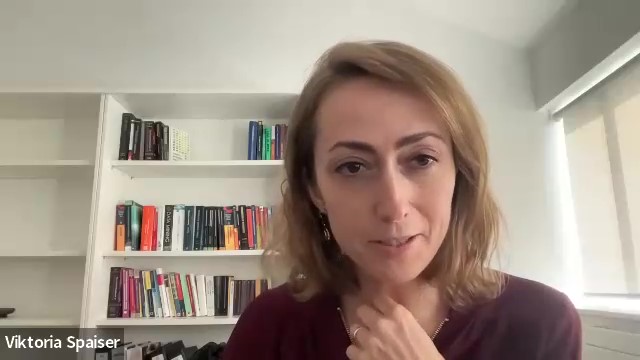
Li Sun, Lecturer in Sociology and Social Policy also at Leeds, cited mobility and a fit for the labour market in the form of publications and presentations as important prerequisites for her career. As a Chinese woman, she was not committed to an academic career in Germany from the outset and has oriented herself internationally. Many of the tasks she was confronted with at the start date of her current tenure track position were new and unfamiliar at first. But she found people who supported her and says today: “Try to be open-minded to learn as much as you can in the first years”.
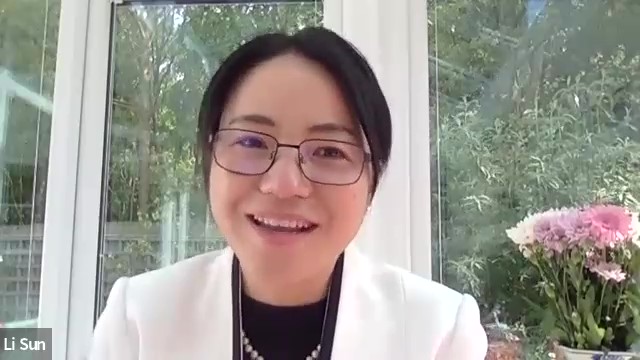
After completing his doctorate in Bielefeld, Edvaldo Moita returned to his home country of Brazil, where he is a professor of public law at the Universidade Federal Fluminense in Rio de Janeiro. Professionally, he is qualified for this position by a completed law degree and doctorate in sociology. Now, the legal rules for public service employment in Brazil are completely different from those in Germany or the UK, for example. Edvaldo told us that he had to take a written exam when a suitable professorship was advertised. This exam was then the basis for his recruitment.
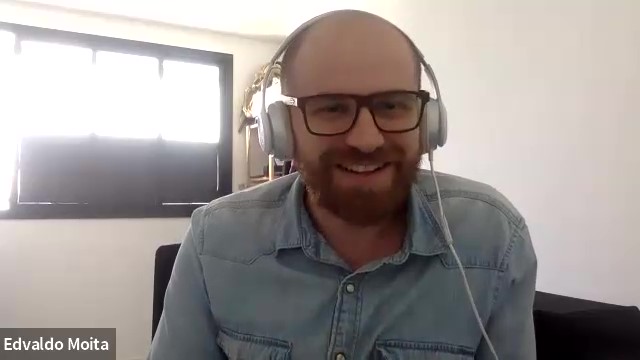
For Sebastian Teupe, the only historian in the round and currently assistant professor of economic history at the University of Bayreuth, the restructuring of the department played an important role. He already had a postdoctoral position at the University of Bayreuth when it was decided there to strengthen the field of economic history by establishing an assistant professorship. It was a perfect situation for him, as he was already there and knew the conditions in the department as well as the interests of the colleagues. So he prevailed in the appointment procedure. A small drop of bitterness, however, is that his professorship is without tenure track.
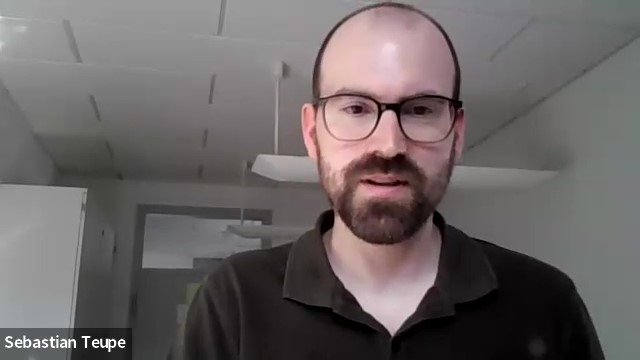
As a single mother with a full-time job, Bettina Mahlert has already completed her doctorate under challenging conditions. However, her profile as a systems theorist subsequently helped her to obtain a postdoctoral position in Aachen, where she wrote her habilitation. At that time, she was able to commute between Bielefeld and Aachen because her son was old enough to manage on his own a few days a week. Her professional profile also qualified her for her current position as assistant professor of sociology at the University of Innsbruck (Austria). At this point you can see how tight the academic job market is: an Austrian assistant professorship is equivalent to the German junior professorship. Actually, these positions are supposed to replace the post-doctoral habilitation qualification. Bettina, however, only got it as a habilitated scientist. However, her position is tenure track, i.e. after successful evaluation she will be able to remain as a professor in Innsbruck.
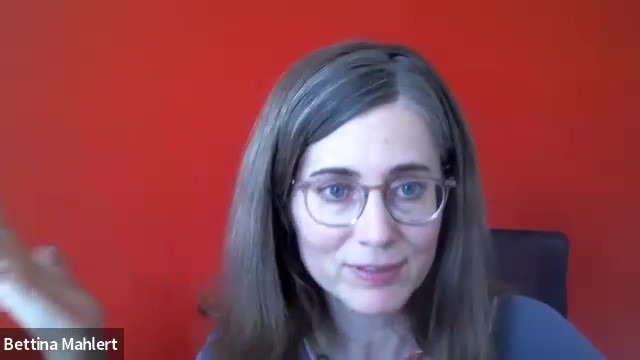
Raphael Susewind decided early on against an academic career in Germany, which had to do with the difficult conditions in the German academic system, but also with his field of research, social anthropology. He applied for around 50 positions all over Europe and received two acceptances for tenure track positions. One of them was at King’s College in London, where he worked until recently. He is now employed at the London School of Economics (LSE). He attributed the fact that he prevailed in the application procedure not to his better qualifications or fit for the job, but to luck and chance. He emphasised that all applicants are very good at what they do and told us about his daily work: for an advertised position in his institute at the LSE, there are 120-150 applications from all over the world that he and his colleagues have to read and rank within about one working day. Fifty applicants are then perfectly qualified to do the job, and 20 of them are also a perfect fit for the institute. It is a matter of chance which of them will be taken on. That is why it is important to have a plan A - not plan B - in case the academic career does not work out. You can't just live for science, you have to have time for other things, for your family, for example. He says: “You need to protect your limits and your health”. Raphael also has two children and was a single parent for a while. He gave himself a year to find out whether the job in London worked for him in this situation - and fortunately it did.
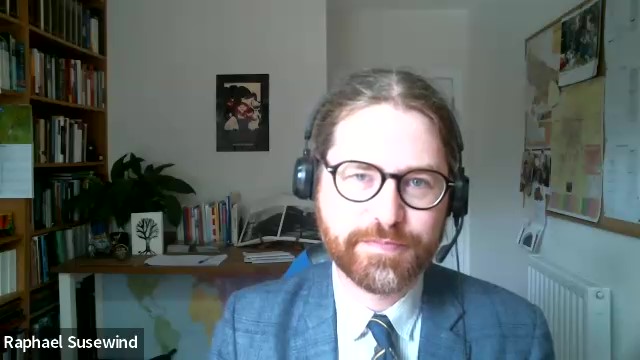
„You do a lot of things that have nothing to do with being a good researcher.” (Raphael Susewind)
The professorship - a dream job?
The alumni made it clear that they enjoy their jobs and the many opportunities they have to shape them. But there are also very different conditions for this. While Viktoria and Li can devote themselves extensively to their research, which they see as a great advantage, other participants emphasised that teaching is important to them and that they enjoy it. However, it is astonishing how little time professors actually have for their own research in the end, especially when one considers that they usually get the job because of their own research profile. But as a professor you spend a lot of time on teaching and administration or management. It is important to concentrate on what you really want to do. That could also be teaching or involvement in self-administration or for the scientific community.
“There is
like a hierarchy, an evaluation in the academic world like research is on top
and has the highest prestige and then there is teaching and the third is
administration. And we do not necessarily have to share this evaluation because
I think people are different and there are different strengths and
preferences.” (Bettina Mahlert)
Social aspects of the profession, such as giving students ‘development aid’, which in the case of first generation students can have an impact on entire families, as Edvaldo emphasised for Brazilian conditions, but also the writing of reviews or the development of a study programme obviously contribute in no small measure to the fact that the activity is experienced as meaningful. In most of the stories, the professorship did not appear to be a dream job, which is due to the tight labour market and the abundance of tasks, but it is obviously a job that gives pleasure, creates meaning and is experienced as responsible.
„Over all, it’s a quite entertaining position and to some extent you get this feeling that you’re helping people improve their careers […], an improvement that can help the whole family.” (Edvaldo Moita)
Tips for paths to professorship
The BGHS alumni named flexibility and mobility, preferably international, as the most important prerequisites for academic careers. These qualities are absolutely necessary due to the tight labour market. However, publications and, as a rule, a postdoc position after doctorate are also important for the path. One challenge is to develop a clear profile and position oneself in the system. A certain overview of the conditions in the system is necessary for this, which one can gain by participating in the system and exchanging ideas with others.
But other qualities are also useful, such as being able to deal well with rejection, because you will inevitably experience that. A certain pragmatism is also an advantage, which helps to get things done and to achieve good quality in the process, but not necessarily to strive for perfection. Patience and perseverance also pay off, because chance plays a big role in academic career paths.
„Be good at
failing because you will fail a lot […] and take initiative.” (Viktoria
Spaiser)
And don’t forget: Science is not everything! Being a professor is a professional activity that must also leave room for other things in life.
„Collectivise! […] Join the trade union, treat your work as work, […] not as your identity, not as who you are. […] The collectivisation also means be helpful, give care, build community, share ideas, share advice, share teaching resources. […] so that you can be proud of how you attempted to get there.” (Raphael Susewind)